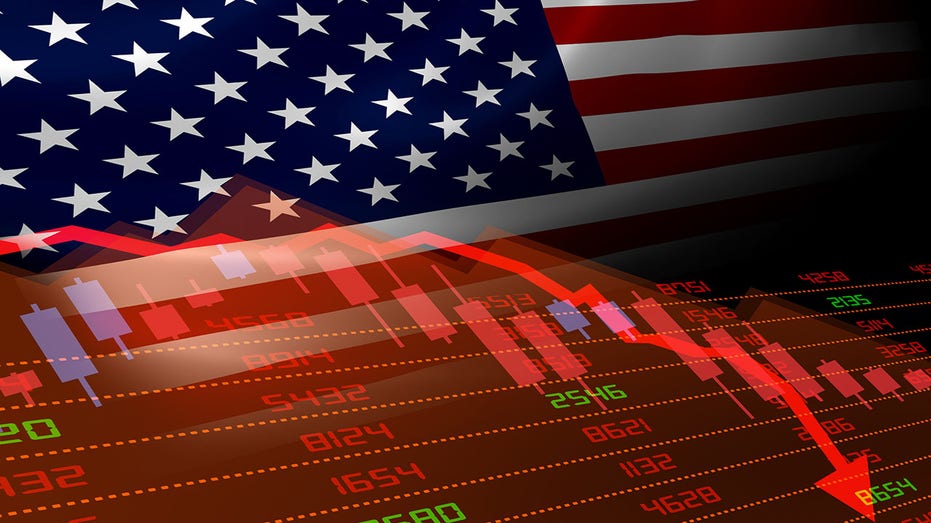Investment expert on market volatility: What's happening is 'very similar' to the 'dot-com wreck'
Mendon Capital Advisors CIO weighs in on market volatility as stocks sink
Markets 'may not have found a bottom yet': Investment expert
Mendon Capital Advisors president and CIO Anton Schutz weighs in on the current market turbulence on 'Mornings with Maria.'
Mendon Capital Advisors president and CIO Anton Schutz weighed in on recent market volatility, arguing on Tuesday that what has been happening is "very similar" to the "dot-com wreck."
Schutz made the comparison on "Mornings with Maria" as U.S. stocks fell across the board after Target warned second-quarter profits will take a hit as the retailer discounts excess inventory.
The tech-heavy NASDAQ Composite, which entered a bear market earlier this year, has fallen 24% year to date. In the meantime, the S&P 500 is down more than 14%.
| Ticker | Security | Last | Change | Change % |
|---|---|---|---|---|
| I:DJI | DOW JONES AVERAGES | 50115.67 | +1,206.95 | +2.47% |
| SP500 | S&P 500 | 6932.3 | +133.90 | +1.97% |
| I:COMP | NASDAQ COMPOSITE INDEX | 23031.213218 | +490.63 | +2.18% |
Schutz noted that "people kept looking for a bottom" during the dot-com crash and argued that currently markets "may not have found a bottom yet," but he believes some stocks are "close."
He also argued that "earnings estimates for some of these stocks are too low versus the markets earnings estimates are probably a little too high."
YELLEN CALLS ELEVATED INFLATION 'UNACCEPTABLE,' BUT OFFERS FEW SOLUTIONS TO COOL PRICES
The dot-com bubble was a quick rise in U.S. equity valuations mostly due to investments in internet-based companies in the late 1990s.
The previous two recessions were likely caused by what’s known as an "asset bubble." Although neither featured a large increase in price inflation, both featured the rapid growth and subsequent bursting of asset bubbles. The 2001 recession was preceded by the dot-com bubble burst, and the 2007-2009 recession was preceded by the housing bubble.

Anton Schutz, Mendon Capital Advisors president and CIO, provides analysis as markets continue to experience turbulence. (iStock / iStock)
Asset bubbles develop when the economy is thriving and investors in a particular asset purchase large quantities of that asset on the belief that it will sell for a higher price. But if those asset prices plummet, and if enough people had significant exposure to that asset, it could drain the value of people across the country.
EVERYBODY GETTING 'HURT' BY INFLATION: INVESTMENT EXPERT
Schutz argued on Tuesday that growth stock valuations are "still very high" and those investing in the space are "still going to be in for a challenge."
Markets have been experiencing volatility in recent weeks as concerns over Federal Reserve rate hikes and high inflation continued to worry investors.
Last month it was revealed that inflation cooled on an annual basis for the first time in months in April, but rose more than expected as supply chain constraints, the Russian war in Ukraine and strong consumer demand continued to keep consumer prices elevated. The new inflation data will be released on Friday.
Inflation will stay high for an ‘extended period of time’: Expert
Michael Lee Strategy founder Michael Lee, Laffer Tengler Investments Arthur Laffer Jr. and Bulltick Capital Markets chief strategist Kathryn Rooney Vera weigh in on inflation and the Federal Reserve.
The Federal Reserve faces the tricky task of cooling demand and prices without inadvertently dragging the economy into a recession.
Fed policymakers hiked the benchmark federal funds rate by a half-point earlier this month, and Fed Chairman Jay Powell has all but promised that two, similarly sized increases are on the table at the forthcoming meetings in June and July. He echoed that sentiment last month as the Fed races to catch up with runaway inflation and bring it back down to the 2% target.
The Fed helped take speculation out of some of the markets: Investment expert
Mendon Capital Advisors president and CIO Anton Schutz argues on 'Mornings with Maria' that the future cash flows of a high-priced growth stock are worth less when interest rates are higher.
Schutz stressed on Tuesday that there is "no question" that higher rates cause lower stock markets and that "that’s what the Fed has done."
He also argued that the future cash flows of a high-priced growth stock are worth less when interest rates are higher.
CLICK HERE TO READ MORE ON FOX BUSINESS
Schutz noted that "30% of stocks are down 30% or more" and argued that "the Fed has helped take the speculation out of some of the markets."
He also argued that he believes what’s happening in markets is more of a "sentiment thing that’s going on right now with the consumer."
"I think they are a little bit concerned," he continued. "Obviously, they have lost money in the stock market [and] they have lost money in crypto — but I think there’s a lot of money to be made eventually in value."
FOX Business’ Megan Henney contributed to this report.























